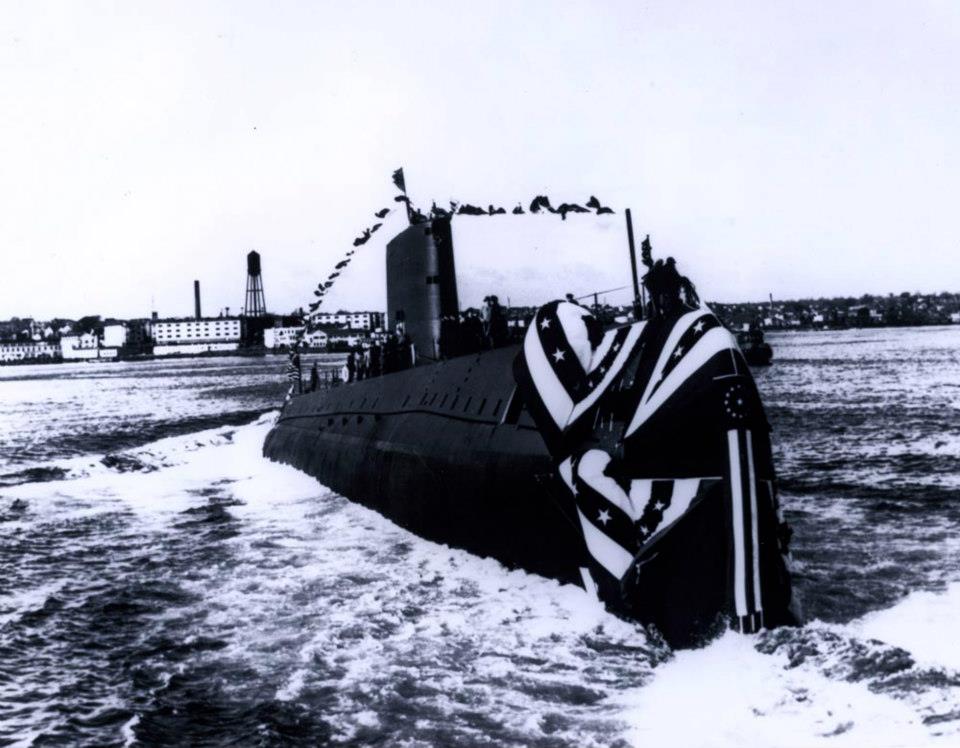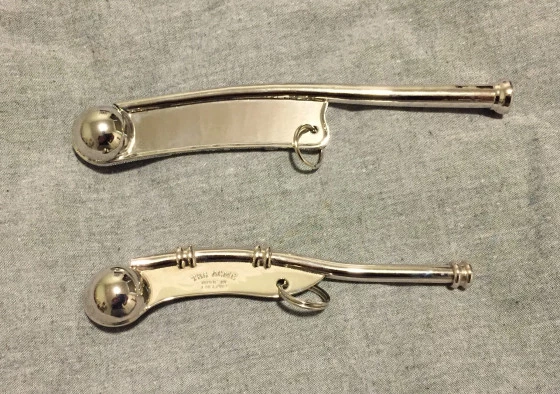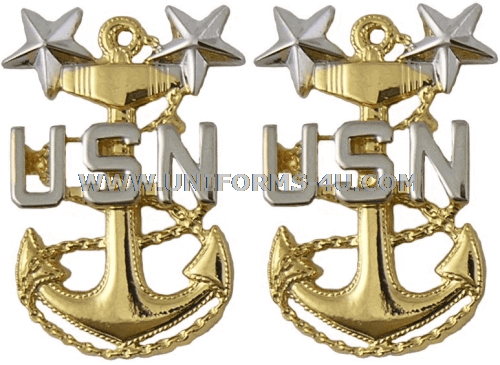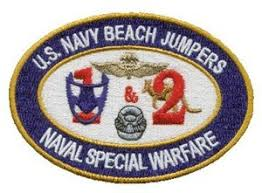Duck Tape©
By Garland Davis
The Base
Face it. Someone at COMNAVVIETNAM fucked up!
The Seabees went up a waterway named Duc Tap and built a beautiful Riverine Support Base. I tried to find the Duc Tap waterway on a map once. I think the only place it existed was in the jungle among the myriad of waterways in the Mekong Delta.
There were two piers, a barge with a machine shop was towed in. An air-conditioned barracks sufficient to house permanent personnel and the members of the boat crews were built. A galley mess hall was constructed with up to date equipment and a storage building and cold storage for ample food items were in an attached building. A power and generator section was built across from the pier. The jungle was razed for a quarter of a mile outside the concertina wire perimeter. A company of ARVN (Army of Viet Nam) troops was detailed to provide security from the Viet Cong guerillas. A nice little base.

The permanent cadre of the base consisted of a Navy Lieutenant as OIC, an Ensign as his assistant, a Chief Engineman, about twenty Enginemen, Shipfitters and Machinist mates. They were there to repair engines and boats as well as operate the power plant. There were three cooks, a couple of Storekeepers, a Corpsman, and a yeoman.
As I said, a nice little base. The problem; no one ever assigned any Swift Boats or PBR’s to the Duc Tap Riverine Support Facility, better known to those of us stationed there as Duck or Duct Tape. All we had was a Mike boat to use for supply runs and to bring the paymaster in every two weeks.
Lieutenant Gerald Farnsworth was from Old New England society and money. He was a tall, extremely good looking individual and turned many female eyes dressed in a white uniform. A word from an uncle to a Massachusetts Senator had resulted in assignment to the USS Constitution out of OCS. After a year there another nudge had him assigned as a White House Aide. He cut quite the picture serving drinks and canapes to LBJ’s guests in a sparking set of Choker Whites or in Khaki making sure the barbeque was served on time while in Texas with the president’s party.
The influential uncle passed away but not before ensuring that Gerald was deep selected for Lieutenant. Newly promoted lieutenant Farnsworth was ordered to Department Head School with the intent of sending him to a ship as either Weapons Officer or Chief Engineer. Once the school learned that he had no experience other than as a bartender or waiter, they dropped him from the school and recommended that a shore billet be found for him or that he be separated from the service. He was offered the OIC slot in Vietnam. He accepted, hoping that a stellar war zone performance would put him back on the road to a successful Navy Career.
During his training at the Naval Amphibious Base Coronado, California and the Language School at Monterrey, California, he discovered an affinity and almost savant ability to not only solve crossword puzzles but to create them. By the time he left for the war zone, he was creating puzzles for a newspaper syndicate and earning a substantial amount of money. A Naval career with sparkling white uniforms was no longer as important. An effort to resign his commission was denied by the Navy and he resigned himself to a year in Vietnam. In his luggage shipped to Nam were hundreds of blank crossword grids.
Ensign Anthony Jacobs, the AOIC, was from Minnesota via Berkeley where he had studied Literature, Marijuana, and Antiwar propaganda. His father refused to pay for Graduate School after he took a bachelor’s degree. Dad, a veteran of Korea, let him know that he was disappointed and embarrassed that his son was trying to avoid service. His college deferment ended, and he was on the short list to be drafted into the Army as a mud slogging private. A classmate urged him to apply for a Naval Commission. That way he could continue his anonymous antiwar writings from inside the American War Machine. He almost deserted to Canada when he received his orders to Vietnam, but the same classmate convinced him that he would be on a secure base, living in comfort, and would be even more valuable writing from inside the war. Besides the grass in Nam was reputed to be many levels above what was available in the Bay Area. This same classmate took Jacobs’ anti-war articles and published them as his own and is now a renowned Democrat Senator from California.
There was a building designated as the theatre where movies could be shown in the evening. Early on the Ensign traded the projector to a Marine patrol for a fart sack full of marijuana buds and Thai sticks laced with opium they had taken off a group of Nguyen’s after a fire fight where they had mistakenly ambushed a group of innocent dope smugglers thinking they were Victor Charlie. The theatre building was to become the base Club.
Chief Engineman Rodney Spears was a shore duty drunk. Serving aboard ship, he worked hard and ran an effective workforce while at sea. While inport, he partied hearty. His Petty Officers kept the workforce effective and covered for the Chief. His orders to the Naval Air Station Imperial Beach where he was assigned as the Chief Master at Arms and the Chief of Police were his downfall. The base never got underway and there were no loyal Petty Officers to cover for him. He lasted less than two weeks. The base C.O. was ready to discharge him as unfit to serve. The Chief broke down and begged to be permitted to serve another year to complete a twenty-year retirement. The C.O. agreed if he would complete a rehab program and serve his final year in Vietnam. The Chief had no choice and gutted his way through the rehab program. Upon his arrival in Vietnam, he discovered a beer called Thirty-Three. A fog settled on Chief Spears that would envelop him for the next year. The only thing that inspired Chief during his year at Duck Tape was creating a club where he could while away his days with his beloved Thirty-Three.
Chief wanted a club. He felt that any self-respecting base should have a club, pulled himself out of his alcohol-fueled daze and studied the instructions discovering that a Commanding Officer or Officer in Charge may establish a club and receive an initial issue of potable beverages at no cost. Subsequent issues of hooch must be paid for by earnings from the club. The chief stayed sober long enough to get the paperwork completed to establish the club, forged the LT’s signature and sent it in. Within a week a message came to send our Mike boat to the supply facility to pick up the booze issue. The boat returned with enough liquor and beer to keep us pickled for the whole year. Chief was disappointed that there was no Thirty Three in the issue but was assured a sufficient amount of Thirty Three would be provided for a carton of smokes a week. Chief happily accepted the job as Club Manager and with a few Nguyen’s to do the work sank back into his haze.
The Doc, a Gunners Mate and me, a Commissaryman (cook), were the only First Class Petty Officers. I was the senior of the Petty Officers. There was a Second Class and six other Machinist Mates there to operate the power plant and oversee maintenance on the air conditioning systems and cold storage plants as well as the huge ice making facility in a room off the galley. All the other personnel ranged from PO2 down to Seamen and Firemen mostly Enginemen, Shipfitters, Pipefitters, and Gunners Mates.
For some reason, we had access to the supply system and food stores for a base of 100 people, repair parts and fuel for the diesel was delivered periodically and the paymaster arrived on time every two weeks with the cash to pay all of us. Having little or no need for money most of us let our pay accumulate on the books.
Every time someone went to the LT with a question or concern, he would tell them, “I am busy, ask Ensign What’s his name. Don’t come to me unless it is important.”
The Ensign crouched over the yeoman’s Selectric typewriter would send them to the Chief and of course the Chief would refer them to me. That is how I became de facto Commander of the Duck Tape Riverine Facility.
One thing I learned. Nguyen is the most common family name in Vietnam. It is pronounced “Win.” Yell “Win, it’s the cops, run,” in a crowd of Vietnamese and you have a good chance of being mangled in the stampede. If you have a hundred Vietnamese in ranks and tell Nguyen to fall out, there will only be three left.
Captain, as far as I could make out, Nguyen Something Nguyen was the commander of the ARVN security force. His uncle, Major General Nguyen had secured the position for him along with the authorization to draw rations for a battalion from the American supply system. He provided the extra food to his cousin Nguyen, who was leader of the local Viet Cong unit. The Cong didn’t attack the base and he didn’t patrol against them. It was what you would call a symbiotic relationship.
Once a month the Charlie Nguyen would have his troops drop a few mortar rounds outside the wire and Captain Nguyen’s troops would fire their 50’s into the jungle and report that an attack on the base was successfully repulsed.
Captain Nguyen’s primary focus became keeping the quarter-mile area clear of vegetation. When it showed signs of encroaching on the fire zone, he would beat Lieutenants Nguyen and Nguyen, they would beat Master Sergeant Nguyen. He would beat the other Sergeants and Corporals who would beat the lower-ranked Nguyen’s and get them out there with sling blades and scythes to hack the encroaching weeds back. At one time I had the SK order a John Deere riding lawn mower to make it easier on the low ranked Nguyen’s. Captain Nguyen commandeered the mower and spent many happy hours mowing the fire zone while smoking C-Ration cigarettes and drinking the Chief’s Thirty-Three. Perhaps it was a portent that one day in the far future, Captain Nguyen would own the largest yard care company in Southern California?
With no boats to service, there was little work for the sailors. I busied myself and the other two cooks with meals and accounting for stores used. I went into the galley one morning to find two Nguyen’s cooking breakfast and my two cooks watching.
“What’s going on,” I asked.
CS3 Bruce said, “Captain Nguyen’s cousin Nguyen arranged for cooks’ helpers. All we have to do is give them is some chow. We got more shit than we can use and if we don’t clear out some of that frozen, we ain’t going to have room for the next delivery.” That had been worrying me, we only had thirty people but were receiving rations for a hundred.
I soon discovered that every sailor had his own Nguyen doing what little work the sailor was required to do.
I went looking for this cousin who was providing all the Vietnamese help. I found him in the Galley office. He explained in extremely good English that he was there to help me. In other words, he was offering to become my Nguyen. After some haggling, we settled on a price in C-Rations and frozen meats for the services of all the Nguyen’s. He told me that his cousin, Captain Nguyen had told him I was running the base.
There was an officer’s shower and head and an Enlisted shower and head. Each shower consisted of two fifty-five gallon drums mounted above the shower stall. These were filled with fresh water each morning and heated in the broiling sun to a comfortable temperature for showering by evening. The LT and the Chief used the officer’s shower. From the color of the Ensigns T-shirt and the smell in his hooch, it was clear that he seldom used this facility. The toilets were outhouse style seats on a raised platform and the waste fell into a half drum below. The worst job a sailor could have was burning shit. There were two drums for each toilet. The used one was replaced by the empty one and fuel oil was poured in with the shit and ignited. The Nguyen’s also took over this job but instead of burning the shit, they hauled it away to fertilize their crops.
The Ensign was so constipated from smoking the opium laced Thai sticks that the only time he shit was when Doc dosed him with Kaufman’s horse laxative. He could be heard screaming, trying to pass turds as hard as the stones the pyramids were constructed of.
One morning I was wakened by yelling from the Galley. CS3 Bruce was screaming at his Nguyen. It seems the Vietnamese had added Nuoc Nam, a smelly fish sauce, to something he was preparing. “I told you, no fucking Nuoc Nam in the food. Don’t Nuoc Nam any fucking thing!” I told my Nguyen, whom I will refer to a Win1 for the rest of this narrative, to tell the Nguyen cooks no Nuoc Nam. I later learned the reason Bruce was so upset; he had pissed in the jar of Nuoc Nam the night before.
After Vietnam, CS3 Bruce left the Navy, attended Culinary Arts School and became famous as the celebrity chef who hosts the Food Network program on Vietnamese Cuisine called “Nuoc Nam No Hands.”
The barracks were designed for a hundred plus persons. I was rousted out of my bunk by about thirty Nguyens moving the bunks and starting to build walls. I found Win1 and asked him what the fuck was happening. He said, “We are building rooms, so sailors will have privacy after we bring wives for you. I am building your room on the side of the galley, so you have more privacy. You are getting special wife, my youngest daughter.”
“Wives! What the fuck, we don’t have wives!” I blustered.
“Sailors ask me about visiting nearby village to find girls. That dangerous. I think better each sailor has own girls. Pretty soon will have thirty very pretty girls. I bring here when rooms ready. Feed girls and cost just little extra C-Rations. Girls will clean hooch, wash clothes and sleeping with sailor.”
After a couple of months had passed, I would compare Duck Tape to the fictitious San Pablo of Sand Pebbles fame. Every sailor had a Nguyen to do his bidding and a pretty young thing to help him through the nights. Captain Nguyen had moved the perimeter out far enough to create a well-manicured soccer field/football field inside the perimeter. The sailors either played football, drank, and played poker.
Win1 became obsessed with poker games and started playing himself. He rapidly developed into an excellent poker player and years later would become a celebrity in the World Series of Poker and the World Poker Tour in Las Vegas where he won millions of dollars. In Vegas, he met and became obsessed with a big titted blonde who was enamored by the money he was winning. A match truly made in heaven. BTW, it turns out that Win1 was the same cousin that led the Viet Kong in that area. After the American left Vietnam, he was ratted out to the communists and fled the country with his family in a fishing boat. His boat was picked up by the destroyer I was serving in.
I was selected for Chief. Chief Spears sobered up long enough to conduct a one Chief initiation of me. We all wore green utilities so all I had to worry about was collar devices and a hat device. Spears loaned me his extras until I was able to get some from the NEX catalog.
As the year wore on, I began to worry about what would happen when our reliefs were ordered in and discovered we had been fucking off for a year and misappropriating government material as well as having indigenous personnel living on the base. I could see Courts Martials for all of us. I trained some of the Nguyens to keep the accounts and do the paperwork. I scared Rodney enough by telling him that his retirement would be jeopardized if the club accounts weren’t correct. He started supervising the club Nguyen’s to keep the records accurate.
The YN had kept the correspondence up and submitted required reports. The LT would sign anything I took to him as long as I didn’t bother him with details.
As the last month approached and we began getting notification of replacements ordered in, I told Win1 that all Nguyen’s including “wives” would have to leave the base, and the barracks be restored to their original condition. Seeing the wisdom of my argument, he reluctantly complied. I ginned up a message to Riverine Forces Command telling them that Duc Tap Riverine Facility was fully operational, and boats could be assigned. Within a week three PBR’s a Swift boat and two Monitors were operating out of the base.
I stole all of the Ensigns opium laced Thai sticks and weaned him off his Opium addiction. I scared the shit out of the Lt and him by telling them in detail what could happen to them because of their wholesale dereliction of duty during their year at Duc Tap. The reliefs slowly began to arrive, and guys began leaving.
Unbelievably, Chief Spears “wife” had dried him out. He turned everything over to his relief and left with the girl in tow. She was pregnant and he was able to marry her and eventually get her an Immigrant’s Visa to the states. They were living in the New Orleans area and were both killed by Hurricane Katrina. Their daughter is a Neurosurgeon at Johns Hopkins.
The LT is a college professor in New England teaching English. He is known as the premier writer of Crossword puzzles in the United States. When his father died, he inherited more money than the crew of a Heavy Cruiser could spend in a Subic Bay seventy-two hour liberty.
The Ensign returned to Berkeley where he pursued a graduate degree for one semester and then sunk into the hard drug community of San Francisco and was found dead in an alley of an overdose.
Me, I completed twenty years and retired in Hawaii with my wife, Win1’s daughter and our twin girls.
Duck Tape was a place and time that shouldn’t have happened and couldn’t have happened in a sane world. But there was nothing sane about Vietnam or that war.














